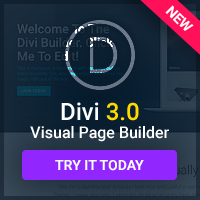There are few more important factors in your website's success than the people who link to it. But why are links so important, and how can you get more people to link to you?
Built on Links.
The early web was built on links: if people wanted to go to websites other than the ones whose addresses they knew by heart, the only way they had of getting there was to follow links. Eventually, whole directories of links started to be built, like the early Yahoo directory. These acted as the gateways to the web.
Rapidly, though, this reliance on links started to be replaced by a reliance on search. Instead of first going to a link directory, users started using search engines that made it easier to find what they were looking for. They would still follow links at the sites they got to, but it didn't take them long to click ‘home' and get back to the search engine to start all over again. This created a web where links gradually seemed to matter less and less, and the big directories were forced to turn themselves into search engines.
The Rise of PageRank.
What Google did when it invented PageRank was to take the search engine and make it pay attention to links. Old search engines relied heavily on unreliable and easily-gamed measures like meta tags and keyword density. PageRank added link popularity into the mix, meaning that your website's ranking would now be influenced by the number of links pointing to it.
What effect did this have? Effectively, it significantly changed the way the web works: instead of users having to choose between searching the web or following links, they now have search engines that follow links for them and try to decide which ones are the most suitable. As you can imagine, this was a big step forward.
What Does That Mean for Me?
Basically, it means that you have to be concerned with how many websites link to you, as it will influence your ranking in the search engines. It also means that you should be careful about who you link to, and that once you have a high ranking, you might even be able to sell sponsored links to people who are trying to raise their search engine ranking.
Of course, you shouldn't ignore the more traditional uses of links either: a link from a popular site is likely to directly send plenty of traffic your way. You've got to take care not to change around your URL system without adding useful redirects, otherwise you'll break people's links and waste this traffic, not to mention making people more reluctant to link to you in the future.
How Do I Get People to Link to My Website?
That's the big question on the modern web, and there are plenty of people out there ready to try and sell you dodgy answers. You should beware of methods like sending your URL out to thousands of sites at random with a message saying “I'll link to you if you link to me”. Every webmaster gets dozens of those every day, and they're really nothing more than spam.
The best way, instead, is to use a human touch. Become involved with forums and other groups to do with your topic, and talk to people with similar websites to yours. Basically, make friends, real friends, and be willing to link to their websites. As long as you're nice about it, the chances are that they'll do the same for you the best way to do it is not to ask at all, so that it looks like you only linked to their site because you thought it was so great.
Do remember, though, that all links aren't equal, either in terms of traffic or search engine ranking. A link from a highly-ranked site will improve your rankings much more than one from a less well-ranked site. It's still good to get as many links as you can, but don't spend a disproportionate amount of time and effort on the less important ones concentrate on getting your site its big break, getting it linked from a really big, popular site.


